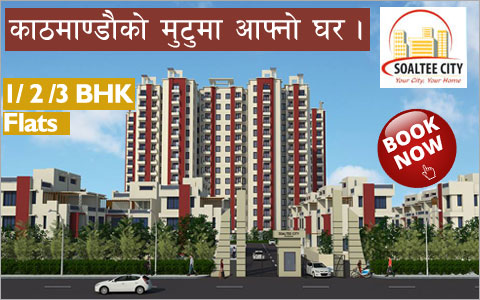National News
BHAKTAPUR: The worn-out workers of Jaya Mayaswori Brick Factory are packing clay and hauling loads with a new sense of purpose — helping to rebuild Nepal after a series of massive earthquakes and aftershocks ravaged the Himalayan nation, leaving hundreds of thousands homeless.
There is urgency to the back-breaking work. Nepal was crippled by last month’s 7.6 local magnitude earthquake, which killed more than 8,000, while a string of strong aftershocks has further terrified the survivors. The capital of Kathmandu is in shambles. Entire villages are flattened into rubble and dust. And many businesses have shut down, leaving survivors scrambling for income.
The brick factories clustered in Bhaktapur, a town on the outskirts of Kathmandu, are some of the few businesses still running. For the owners and workers who have not fled back to their villages, that means there is still a chance of earning daily wages and profits.
“I am making my contribution in rebuilding our country by making these bricks,” said 17-year-old Barsa Pun Magar, who joined the factory six months ago.
“There has been so much destruction,” she said. “Every brick is going to help bring the country and people back on their feet.”
Though many of the factories have also been damaged, with kiln towers toppled and workers’ housing destroyed, those who remain are labouring overtime before the anticipated rush for construction materials. In a few weeks, monsoon will arrive and create impassable mud swamps, trigger landslides and pummel the tarpaulin tents providing shelter to many across the country.
“There is definitely going to be a big demand for bricks in the next few months as people start to rebuild,” factory owner Shree Bhakta Sukhupayo said.
He expects the price of bricks to go up, from a pre-quake level of about 17 US cents to as much as 25 cents. But he insists he will not profit from the tragedy by raising his prices.
“We have faced a big loss in the earthquake, we are also victims,” he said. “We hope the government will bring programmes that could help businesses like ours.”
Nepal faces billions in reconstruction costs, and has appealed for foreign governments and agencies for help. Almost 745,600 buildings and homes have been damaged or destroyed, including at least 87,700 in the Capital, according to Nepal’s emergency authority. Engineers say only 40 per cent of Kathmandu’s damaged buildings as habitable.
Brick-making is gruelling work, involving packing clay into rectangular lumps, firing them in kilns and hauling them to enormous stacks awaiting transport. The hours are also long — sometimes 12 hours a day.
But the workers, many with family in shattered villages, are also racing against time and weather. With Nepal’s needs so vast, and its future prospects uncertain, many are doing overtime because it’s the only job they can get.
“I have to work to feed my family,” said Kalu Ram Bika, 37, who sends some of the money he earns to his parents in their village in southern Nepal. “We work. We get fed. It does not matter how bad the situation is. We have to work.”
source:the himalayan times,16 may 2015
- 9th Nepal Buildcon International Expo 2024
- Real Estate Expo 2023
- NRB raises housing loan limit to encourage home constructions
- Nepal Rastra Bank (NRB) Monetary Policy 2080-2081
- New Price of Land in Kathmandu Metropolitan City, Nepal
- Capital Gains Tax Rate on Real Estate Transactions in Nepal 2080-81 ( 2023/24 )
- Kathmandu metropolis implements free parking policy for commercial buildings and hospitals

![[X]](https://www.housingnepal.com/images/popup-close-button.png)











































































































































































































































































































































































































































 Facebook
Facebook
 Delicious
Delicious
 Digg
Digg
 Reddit
Reddit
 Stumble Upon
Stumble Upon









